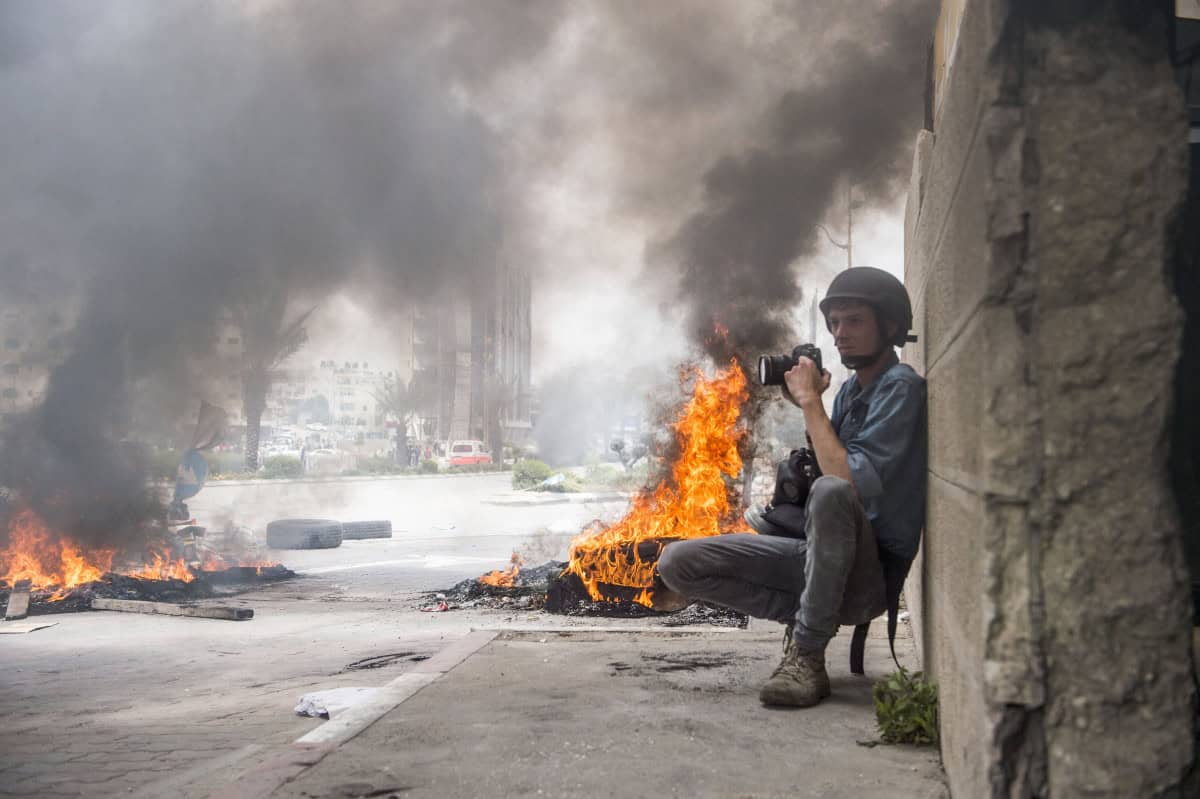Meet documentary photographer Seth Herald.
Seth Herald (b.1991) is an American Documentary photographer from Northwest Ohio and is now based in Jerusalem.
He has worked across the United States covering national news and has spent time in Israel and the Occupied Territories working on personal projects, documenting daily life and covering daily news.
In 2015, He placed first and second in the Indiana Associated Press Awards for his collaborative work covering the HIV epedimic in Southern Indiana with WFYI public radio for Best Continuous Coverage of a Single Event and Best News Series.

As a photojournalist, you’re in control of both words and images. Do you think this affects the stories you choose?
Most definitely. Not fully understanding the narrative of a story or given news situation can lead to misinformation, and in our world of “fake news” that can be very dangerous. How a person or situation is written about and photographed can have huge affects on how people view the stories and images I and my colleagues produce.
You’ve covered violent protests in the US as well as the West Bank. What are the differences in covering conflict at home versus abroad?
Covering protests in the Occupied West Bank is an all day event. There is no structure to protests and violence is expected, whereas in the U.S. violence tends to come unexpectedly- at least so it seems? And protests can be put to an end as quickly as they started.

How do you protect yourself and your gear when things go pear-shaped?
Being very observant and following your gut is key to protecting yourself. If I keep myself protected, then ultimately my gear stays protected as well… at least most of the time.
Do you have any safety training?
I’ve no formal training, but I’ve informally learned from veteran photographers/mentors on the ground how to navigate and care for myself in tense situations. There are programs for this type of training that I plan on taking in the near future.

You’re a US expat living in Ramallah. A common misconception is…
A misconception I’m confronted with from time to time is that I’m just another western journalist coming in with an already formed opinion and perception of this place, and to be honest my first time in the Occupied West Bank in 2014, I had my own ideas, but they were quickly changed.

How do you prepare for an assignment?
Research and preparation, lots of it, for me are key before any assignment. The night before an assignment my gear is packed ready to go and my clothes and boots are laid out so I can get up and go.
Got any advice for budding photojournalists?
Don’t get into the industry for glamour and fame; you won’t find it. Secondly, work hard, shoot everyday, and study the work of those that came before. Don’t be scared to reach out to someone who’s work you admire. Finding a good mentor is also very helpful.

Please describe a recent or future project.
I’ve got a few projects in the works which I will be starting soon. A recent story I did for Mondoweiss was about Palestinian Muslims and Christians who came together to protest the closing of the Church of the Holy Sepulchral, which was great: a lot of people don’t realize that Christians and Muslims have been living in peace here for thousands of years. So to be able to visualize that was something for me that I won’t forget.









